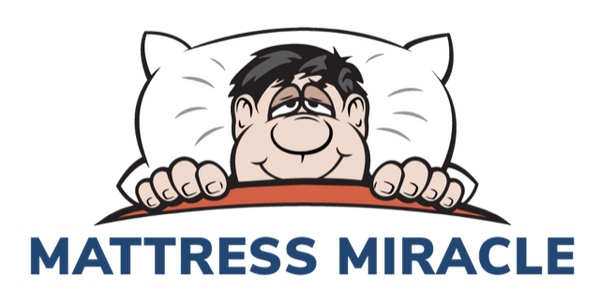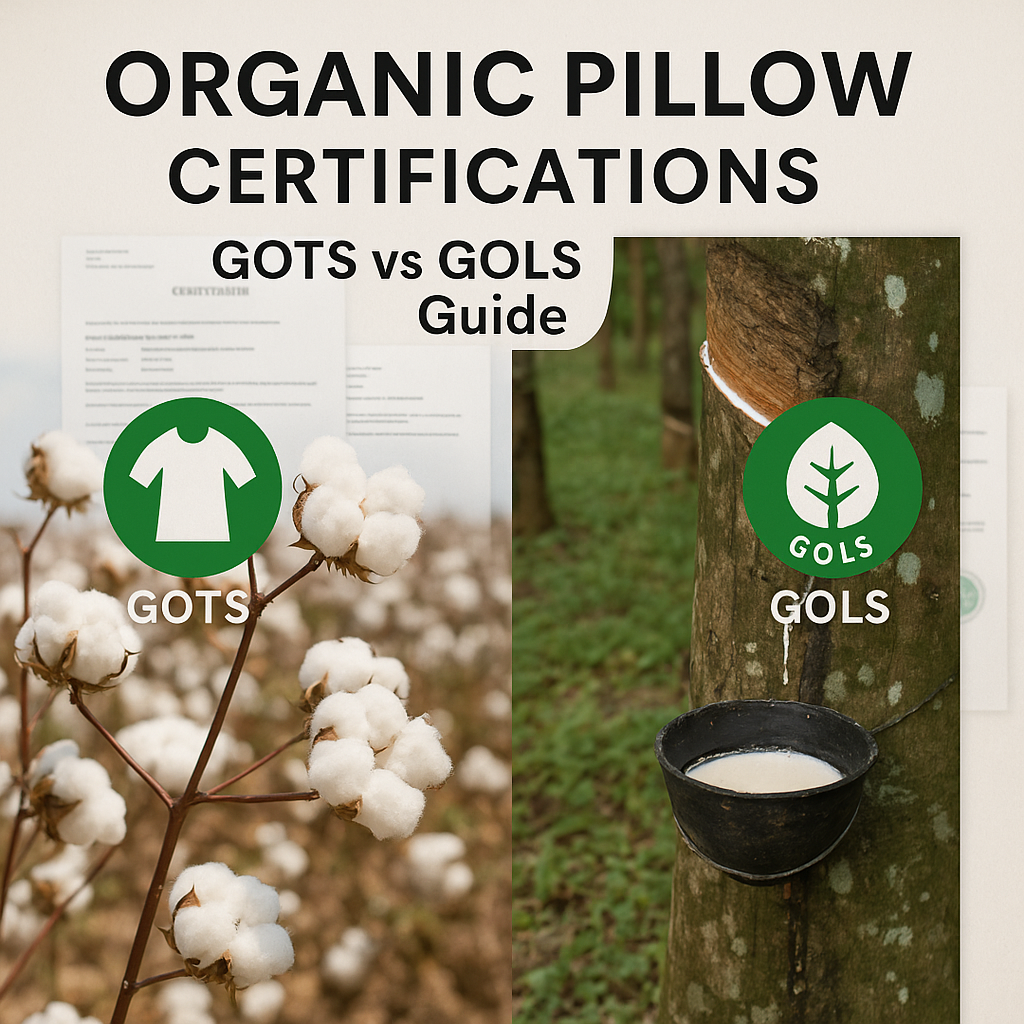How to Choose the Right Pillow for Your Needs
A step-by-step guide to finding the perfect pillow based on your specific needs and budget.
Step 1: Assess your sleep needs and preferences
Before shopping for a pillow, identify what matters most to you. Consider your sleep position, any pain points like back or hip discomfort, temperature preferences, and whether you share the bed. Write down your top three priorities so you stay focused when comparing options.
Step 2: Set a realistic budget
Determine how much you can invest in a quality pillow. Remember that you spend roughly one-third of your life sleeping, so this is not the place to cut corners. A mid-range pillow from a reputable store often outperforms a cheap option that wears out in two years.
Step 3: Research materials and construction
Learn what goes into a quality pillow. Materials like solid wood, high-density foam, and quality fabrics make a measurable difference in comfort and durability. Read the specifications, not just the marketing. Canadian-made products often use higher quality standards.
Step 4: Visit a local showroom to test in person
Online reviews help, but nothing replaces physically testing a pillow. Visit Mattress Miracle at 441 West St in Brantford to try before you buy. Spend at least 10 to 15 minutes testing. Brad has over 35 years of experience and can guide you to the right fit.
Step 5: Ask about warranty, delivery, and after-sale support
Before purchasing, confirm the warranty coverage, delivery options, and what happens if there is an issue. Buying from a local store like Mattress Miracle means you deal with real people, not a call centre. Call 519-770-0001 with any questions.
Organic Pillow Certifications: GOTS vs GOLS Standards Guide
Natura Organic Pillows Complete Guide:
Complete Guide Hub - All 13 Articles
📖 11 min read

Navigating organic pillow certifications protects Canadian consumers from misleading marketing while ensuring genuine organic products. After 37 years of validating organic bedding claims in Brantford, we've seen countless customers confused by certification acronyms and marketing language.
This comprehensive guide decodes the most important organic pillow certifications, explains what each standard requires, and reveals which certifications actually protect your health and investment. By understanding these standards, you'll shop with confidence and avoid greenwashing tactics.
Why Organic Pillow Certifications Matter
Unlike food, there's no Canadian government standard for "organic" bedding. This regulatory gap allows manufacturers to use misleading terms without consequences.
The Organic Marketing Problem
Common misleading terms you'll encounter:
- "Natural": No regulatory definition - can contain synthetic materials
- "Eco-friendly": Vague marketing term with no standards
- "Chemical-free": Impossible claim - everything is made of chemicals
- "Non-toxic": Undefined term that varies by manufacturer interpretation
- "Organic blend": May contain as little as 5% organic content
Real Example: Marketing vs. Reality
Marketing Claim: "Natural Organic Memory Foam Pillow"
Reality: 95% synthetic polyurethane foam with 5% natural latex and no organic certifications
Protection: GOLS certification would require 95%+ organic content and transparent supply chain documentation.
GOLS: Global Organic Latex Standard
GOLS represents the world's most rigorous standard for organic latex products, including pillows.
GOLS Requirements for Pillow Manufacturers
Organic Content Requirements:
- 95% Minimum: At least 95% of latex content must be certified organic
- 5% Maximum Non-Organic: Limited to essential processing materials only
- Zero Synthetic Latex: No petroleum-based latex substitutes permitted
- Prohibited Substances: Extensive list of banned chemicals and treatments
Supply Chain Tracking:
- Tree to Pillow: Complete tracking from rubber plantation to finished product
- Organic Farm Certification: Plantations must meet organic farming standards
- Processing Documentation: All manufacturing steps must be documented
- Annual Inspections: Third-party verification at all supply chain levels
GOLS Environmental Requirements
Farming Standards:
- No synthetic pesticides or herbicides
- No synthetic fertilizers or soil amendments
- Biodiversity preservation requirements
- Soil health maintenance standards
Processing Standards:
- Energy efficiency requirements
- Water conservation measures
- Waste reduction protocols
- Chemical use minimization
GOLS Social Criteria
GOLS goes beyond environmental standards to ensure ethical production:
- Fair Labor Practices: Safe working conditions and fair wages
- Community Impact: Positive effects on local communities
- Worker Rights: Freedom of association and collective bargaining
- Child Labor Prohibition: Strict enforcement against child labor
GOTS: Global Organic Textile Standard
GOTS governs organic textile components in pillows, particularly covers and fabric elements.
GOTS Pillow Cover Requirements
Organic Fiber Content:
- 70% Minimum: At least 70% organic natural fibers required
- 95% for "Organic" Label: Products labeled "organic" need 95%+ organic content
- Prohibited Fibers: No synthetic fibers except for essential structural elements
- Fiber Quality: Only high-grade organic cotton, wool, or other natural fibers
Chemical Restrictions:
- Banned Substances: Over 200 chemicals prohibited in processing
- Dye Restrictions: Only low-impact, non-toxic dyes permitted
- Finishing Treatments: No formaldehyde, chlorine bleaching, or toxic finishes
- pH Requirements: Final products must meet skin-safety pH levels
| Aspect | GOLS (Latex Core) | GOTS (Textile Cover) |
|---|---|---|
| Primary Focus | Latex pillow filling material | Organic cotton/wool covers |
| Minimum Organic Content | 95% organic latex | 70% organic fibers (95% for "organic" label) |
| Chemical Restrictions | Prohibited latex processing chemicals | 200+ banned textile chemicals |
| Supply Chain Tracking | Plantation to pillow core | Farm to finished textile |
| Inspection Frequency | Annual facility inspections | Annual supply chain audits |
| Social Criteria | Fair labor and community impact | Worker safety and rights protection |
GREENGUARD Gold: Indoor Air Quality Protection
GREENGUARD Gold certification ensures pillows don't compromise indoor air quality through chemical emissions.
GREENGUARD Gold Testing Requirements
Chemical Emissions Testing:
- 10,000+ Chemicals: Comprehensive testing for harmful emissions
- VOC Limits: Strict volatile organic compound emission limits
- Sensitive Populations: Extra protection for children and chemical-sensitive individuals
- Real-World Conditions: Testing simulates actual indoor use conditions
Ongoing Compliance:
- Annual Re-certification: Products must pass testing annually
- Quality Assurance: Manufacturing consistency monitoring
- Spot Testing: Random market samples tested for compliance
Why GREENGUARD Gold Matters for Pillows
Your pillow sits inches from your breathing zone for 7-8 hours nightly. Even small amounts of chemical off-gassing can accumulate over time, potentially causing:
- Respiratory irritation and congestion
- Headaches and sleep disruption
- Skin and eye irritation
- Long-term health concerns from chronic exposure
Secondary Certifications: What They Mean
Several additional certifications provide useful but less comprehensive protection:
OEKO-TEX Standard 100
Focus: Tests for harmful substances in textiles
- Chemical Testing: Tests for 100+ harmful chemicals
- pH Safety: Ensures skin-safe acidity levels
- Colorfastness: Verifies dyes won't leach or fade
- Limitation: Doesn't require organic content - synthetic materials can pass
CertiPUR-US
Focus: Foam safety (mainly for synthetic memory foam)
- Chemical Restrictions: Prohibits certain harmful foam chemicals
- Low Emissions: Limits VOC off-gassing
- Limitation: Only applies to synthetic foam, not natural latex
Cradle to Cradle Certified
Focus: complete sustainability and health
- Material Health: Chemical safety assessment
- Renewable Energy: Manufacturing energy requirements
- Water Stewardship: Water use and quality standards
- Social Fairness: Worker and community impact
How to Verify Certification Authenticity
Fake certifications are common in the bedding industry. Here's how to verify authentic certifications:
Verification Steps for Canadian Buyers
-
Check Certification Databases:
- GOLS: Search certified products at gots.org
- GOTS: Verify at global-standard.org
- GREENGUARD: Check at greenguard.org
- Look for Certificate Numbers: Authentic certifications include specific tracking numbers
- Verify Manufacturer Listings: Certified manufacturers appear in official databases
- Request Documentation: Legitimate retailers provide certification documents
Red Flags: Fake Certifications
- Generic Logos: Certification logos without specific details
- No Certificate Numbers: Missing tracking or license numbers
- Unofficial Names: "GOTS-inspired" or "GOLS-style" instead of actual certifications
- Retailer Refusal: Unwillingness to provide certification documents
- Database Absence: Products not found in official certification databases
Canadian-Specific Considerations
Canadian buyers face unique challenges when shopping for certified organic pillows:
Import Regulations
- Customs Documentation: Certifications help verify organic claims at border
- Duty Exemptions: Some organic products qualify for reduced import duties
- Health Canada Recognition: International certifications accepted for health claims
Provincial Variations
- Quebec: French labeling requirements for certification information
- British Columbia: Additional environmental standards preferences
- Ontario: Strong consumer protection laws support certification verification
The Natura Advantage: Multiple Certifications
Natura pillows demonstrate how comprehensive certification provides maximum consumer protection:
Natura's Certification Portfolio
GOLS Certification:
- 95%+ organic latex content verified
- Complete supply chain documentation
- Annual third-party inspections
GOTS Certification:
- Organic cotton covers certified
- Chemical-free textile processing
- Social responsibility compliance
GREENGUARD Gold:
- Low chemical emissions verified
- Safe for children and sensitive individuals
- Indoor air quality protection
Frequently Asked Questions About Organic Pillow Certifications
Are certified organic pillows worth the extra cost?
Yes, particularly for long-term health and durability. Certified organic pillows typically last 15-20 years compared to 2-5 years for synthetic alternatives, making them cost-effective over time while providing health benefits.
Can a pillow be organic without certifications?
While theoretically possible, there's no way for consumers to verify organic claims without third-party certification. Given the prevalence of misleading marketing, certifications are essential for genuine organic assurance.
What's the difference between GOTS and OEKO-TEX Standard 100?
GOTS requires organic content and restricts harmful chemicals, while OEKO-TEX Standard 100 only tests for harmful substances without requiring organic materials. GOTS is more comprehensive for truly organic products.
Do all parts of a pillow need to be certified?
For complete protection, both fill and cover should be certified. GOLS covers latex cores, while GOTS covers organic cotton or wool covers.
How often are certifications renewed or updated?
Most certifications require annual renewal with inspections and testing. GOLS and GOTS require annual audits, while GREENGUARD Gold requires annual emissions testing to maintain certification.
Can I trust online certification verification tools?
Official certification organization websites are reliable for verification. Avoid third-party verification sites and always cross-reference with official databases from GOLS, GOTS, or GREENGUARD organizations.
Visit Mattress Miracle
Find us at 441 1/2 West Street, Brantford, Ontario. Rated 4.9 stars on Google. Family-owned since 1987.
Ready to Shop Certified Organic Pillows?
Visit our Brantford showroom to see authentic certification documents and test genuinely certified organic pillows from trusted manufacturers like Natura.
Shop Certified Organic PillowsQuick Answers
Are organic pillows worth it? If you're sensitive to chemicals or have skin issues, probably. GOTS-certified organic pillows avoid synthetic materials and flame retardants. Otherwise, regular pillows are fine.
What makes it actually organic? Look for GOTS or GOLS certification. That's the real deal. "Natural" doesn't mean organic - it's marketing. Certified organic means the materials and processing are verified chemical-free.
Organic vs natural? Organic is certified - strict standards for growing and processing. Natural just means "from nature" but could still use pesticides. Big difference.

